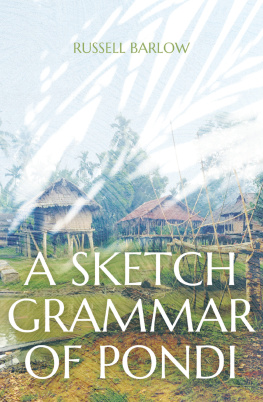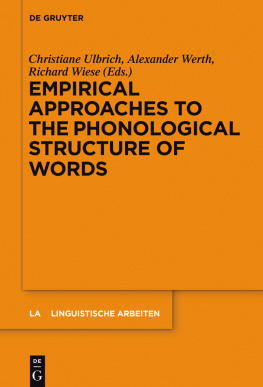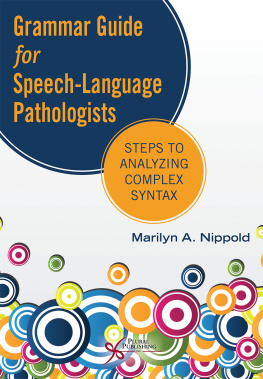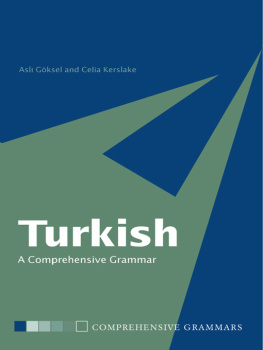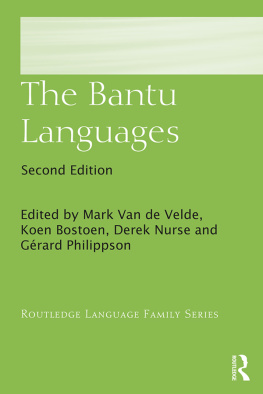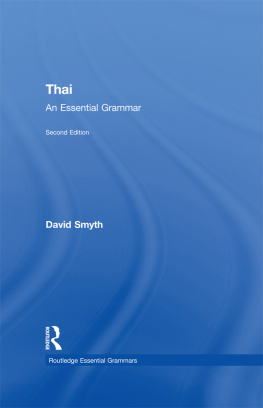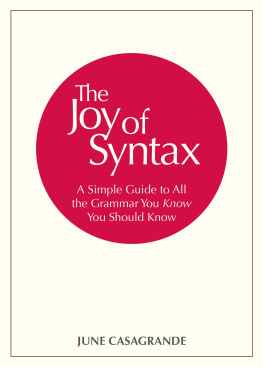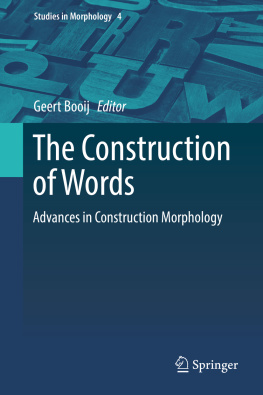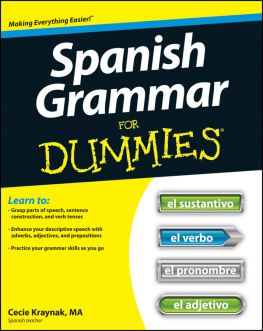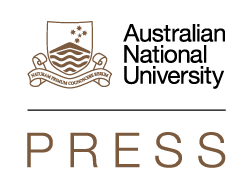A Sketch Grammar of Pondi
A Sketch Grammar of Pondi Russell Barlow
Published by ANU Press The Australian National University Acton ACT 2601, Australia Email: anupress@anu.edu.au Available to download for free at press.anu.edu.au ISBN (print): 9781760463830 ISBN (online): 9781760463847 WorldCat (print): 1175268620 WorldCat (online): 1175268668 DOI: 10.22459/SGP.2020 This title is published under a Creative Commons Attribution-NonCommercial- NoDerivatives 4.0 International (CC BY-NC-ND 4.0). The full licence terms are available at creativecommons.org/licenses/by-nc-nd/4.0/legalcode Cover design and layout by ANU Press. Cover photograph by Russell Barlow. This edition 2020 ANU Press
Contents
ix Acknowledgements Above all, I have to thank the Pondi speakers who patiently and enthusiastically shared their language with mein particular, Clement Katram, Bonny Koiama, and Robert Kupoa. I must also thank Mr Thomas Ambata and Mrs Betty Ambata of the Manu Primary School for accommodating us while we worked on documenting the language. Some of the research that led to this sketch grammar was conducted while I was a PhD student at the University of Hawaii at Mnoa.
Thanks to my amazing dissertation committee for teaching me how to write a reference grammar, and above all to Lyle Campbell. My field research in Papua New Guinea in 2016 was supported in part by a Firebird Foundation fellowship, for which I am also grateful. The remainder of the research leading to this grammar I undertook as a postdoctoral researcher at the Department of Linguistic and Cultural Evolution at the Max Planck Institute for the Science of Human History in Jena, Germany. I would especially like to thank Russell Gray for his continued support and encouragement. Thanks also to Bill Foley for coaxing me to the Sepik in the first place, and to Timothy Usher for our lively discussions about the linguistic prehistory of the region and for his helpful comments on an earlier draft. xi List of abbreviations The following abbreviations have been used in the glosses of Pondi. xi List of abbreviations The following abbreviations have been used in the glosses of Pondi.
Wherever possible, the conventions of the Leipzig Glossing Rules (Comrie et al. 2008) have been followed. 1st person 2nd person 3rd person cond conditional detr detransitiviser du dual fut (immediate) future imp imperative indf indefinite int intensive ipfv imperfective irr irrealis neg negative/negator npl non-plural (less than three) obj object (or non-subject) obl oblique pfv perfective pl plural (or more than two) poss possessive prf perfect proh prohibitive q question refl reflexive sg singular sim simultaneous subj subject vol volitive The following is a list of other abbreviations used in this book. EGIDS Expanded Graded Intergenerational Disruption Scale excl exclusive f feminine incl inclusive IPA International Phonetic Alphabet ISO International Organization for Standardization LEI Language Endangerment Index m masculine NP noun phrase PARADISEC Pacific and Regional Archive for Digital Sources in Endangered Cultures PNG Papua New Guinea PP postpositional phrase A Sketch Grammar of Pondi xii sp. species (not necessarily used in a scientific sense) SVC serial verb construction TAM tense-aspect-mood TP Tok Pisin VP verb phrase xiii List of maps, figures, and tables Maps Figures Tables A Sketch Grammar of Pondi xiv Introduction This is a grammatical sketch of Pondi [ISO 639-3 lnm, Glottocode lang1328], a severely endangered language spoken by fewer than people, almost all of whom live in a single village in the Sepik region of Papua New Guinea (PNG). Pondi is a non-Austronesian (i.e.
Papuan) language, belonging to the Ulmapo branch of the Keram family. 1.1 Organisation In this introductory chapter, I briefly describe the previous research on the language (1.2) and my own research methodology (1.3), before explaining the orthography and presentation of examples in this grammar (1.4). Then I provide some extralinguistic context for the Pondi language and people (1.5), describe its level of endangerment (1.6), and discuss its genetic classification (1.7). Chapter 1 concludes with a typological overview of Pondis grammar (1.8). Chapter 2 covers matters of phonetics and phonology. Then I discuss the morphology of two very important word classes: nouns (Chapter 3) and verbs (Chapter 4).
After this, I cover other, smaller word classes, including pronouns, determiners, and postpositions (Chapter 5). In Chapter 6, I consider syntactic phenomena that exist at the level of the phrase, including nominal number and possession (for noun phrases) and compound verbs and equational constructions (for verb phrases). Then, in Chapter 7, I turn to clausal syntax, looking at basic constituent order, alignment, core arguments and obliques, and monoclausal sentences. The focus of Chapter 8 is the syntax of the Pondi sentence, beginning with a discussion of complex sentences before turning to a number of syntactic topicsnamely, questions, A Sketch Grammar of Pondi commands, negation, reported speech, and conditional sentences. Finally, Chapter 9 provides a lexicon of over Pondi words, presented both as a Pondi-to-English word list and as an English-to-Pondi finder list. 1.2 Previous research on the language Prior to 2016, there was only minimal linguistic research concerning the Pondi language. 1.2 Previous research on the language Prior to 2016, there was only minimal linguistic research concerning the Pondi language.
Donald Laycock (1973:36) first identified the language (as Langam) in the linguistic literature, following a survey trip in 1971, during which he produced 21 pages of handwritten field notes, including a word list of about words and some basic sentences that he had elicited. These have never been published, but digital copies of his field notebooks (including these notes on Pondi) are available through the PARADISEC online archive (Laycock 1971). Pondis two closest relatives are Ulwa and Mwakai. Barlow (2018) is a reference grammar of Ulwa. Barlow (2020) offers grammatical notes on Mwakai. 1.3 Methodology The descriptions and analyses here are based on two field trips.
On the first field trip (July 2016), I visited Langam village, where Pondi is spoken. I spent about 12 hours eliciting words and sentences over the course of two days. My three consultants then were Bonny Koiama (born 1966), Clement Katram (born 1973), and Robert Kupoa (born around 1965). On the second field trip (August 2018), I met with just Bonny Koiama and Clement Katram, who travelled to Manu village (about a days walk away from Langam) to work with me. There I spent about 18 hours eliciting data over the course of three days. In total, I have recorded about 27 hours of Pondi digital audio data, which is archived with PARADISEC (Barlow 2016).
Next page
